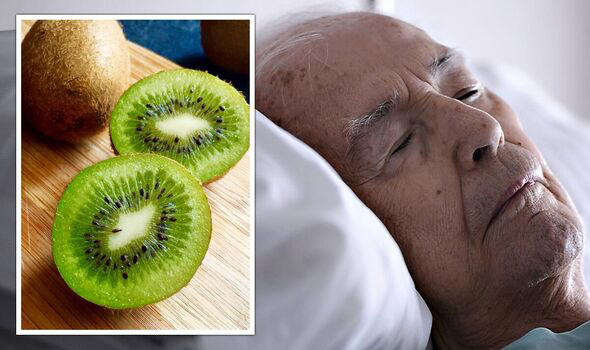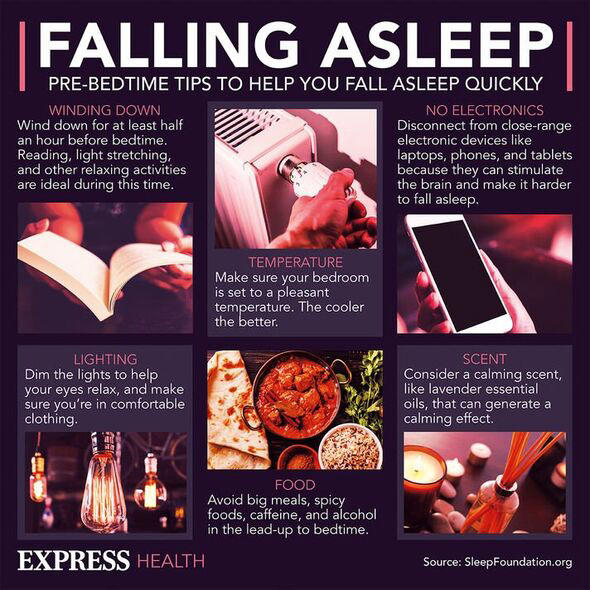What is mouth and oropharyngeal cancer?















What is mouth and oropharyngeal cancer?
Mouth and oropharyngeal cancer is when abnormal cells in the mouth and oropharynx start to grow and divide in an uncontrolled way.
Mouth cancer can start in different parts of the mouth, including the lips, gums or soft sides of the mouth. Oropharyngeal cancer starts in the oropharynx. The oropharynx is the part of the throat (pharynx) just behind the mouth. It includes tonsil cancer and cancer in the back part of the tongue.
Mouth cancer is also sometimes called oral cancer.
This section is about both mouth and oropharyngeal cancer. These cancers often start in the same type of cell. Doctors use similar tests and treatments for these cancers although there are some differences.
If your cancer started on your tongue, you might also find it useful to look at our information about tongue cancer.
The mouth
The medical term for the mouth is the oral cavity. Mouth cancer can start anywhere in the oral cavity. This includes the:
- lips
- inside lining of the cheeks and lips (buccal mucosa)
- front 2/3 of the tongue
- gums (gingiva)
- floor of the mouth
- roof of the mouth (hard palate)
- area behind the wisdom teeth (retromolar trigone)
The mouth and oropharynx help us breathe, talk, eat, chew and swallow.

The oropharynx
The medical term for the throat is the pharynx. The pharynx is divided into 3 parts.
The parts are:
- oropharynx
- nasopharynx
- laryngopharynx
The oropharynx is the part of the throat just behind the mouth. Cancer starting in this area is called oropharyngeal cancer (pronounced oar-oh-fah-rin-jee-al).
The oropharynx includes the:
- back 1/3 of the tongue
- soft area at the back of the roof of the mouth (soft palate)
- tonsils and 2 ridges of tissue in front of and behind the tonsils (tonsillar pillars)
- back wall of the throat
Reference: Cancer Researc.uk
Certain fruits eaten an 'hour' before bed may 'significantly increase' sleep efficiency














Certain fruits eaten an 'hour' before bed may 'significantly increase' sleep efficiency
Medical conditions and work obligations can severely compromise sleep quality, but these issues can be mitigated with the right lifestyle changes. Some clinical institutions encourage the consumption of fruit to improve the duration and quality of shut-eye. The unique nutritional profiles of cherries and kiwifruit, for example, have proven useful in improving the overall efficiency of sleep.
The Asia Pacific Journal of Clinical Nutrition was among the first to highlight the benefits of kiwi for sleep.
According to research published by the journal, kiwifruit contains a host of medical compounds comprising antioxidants and serotonin.
Both molecules have proven beneficial in the treatment of sleep disorders, helping improve the onset, duration and quality of sleep.
This conclusion was drawn after scientists conducted a study on a sample of twenty-four subjects aged between 20 and 55 years old.
All participants consumed kiwifruit "an hour" before bedtime every night over a period of four weeks while different parameters of sleep were assessed.
After four weeks, the patients demonstrated reduced waking time after sleep onset and a decrease in the time it took to fall asleep (sleep latency).
In fact, keep onset latency decreased by 35.4 percent and walking time after sleep onset fell by 28.9 percent.
"Total sleep time and sleep efficiency were significantly increased," noted the authors.
They then concluded: "Kiwifruit consumption may improve sleep onset, duration and efficiency in adults with self-reported sleep disturbances."
Though further investigations are warranted to confirm these effects, there are plausible explanations for the sleep-promoting effects of kiwis.
Firstly, the serotonin content of kiwis has been shown to play a unique role in the regulation of sleep cycles.
This is because it is a chemical precursor to melatonin, the main hormone responsible for inducing sleep.
Scientists sequence Beethoven’s genome using locks of his hair















Scientists sequence Beethoven’s genome using locks of his hair
Scientists have analysed five locks of what is believed to be Beethoven’s hair to sequence the genome of the prodigious composer.
Their findings indicate it is likely that a genetic predisposition to liver disease and a hepatitis B infection, combined with his broadly accepted alcohol consumption, contributed to his death.
German composer and pianist Ludwig van Beethoven was born in 1770 in Bonn and died in Vienna in 1827 aged 56.
He suffered progressive hearing loss, which began in his mid to late 20s and led to him being functionally deaf by 1818.
An international team of researchers led by Cambridge University analysed strands of hair from eight locks of hair in public and private collections in a bid to shed light on Beethoven’s health problems.
Five locks were deemed “authentic” by the researchers and came from a single European male.
The team of scientists were unable to find a definitive cause for Beethoven’s deafness or gastrointestinal problems.
But they did discover a number of genetic risk factors for liver disease and evidence of a hepatitis B infection in the months before the composer’s final illness.
Lead author Tristan Begg of Cambridge University said: “We can surmise from Beethoven’s ‘conversation books’, which he used during the last decade of his life, that his alcohol consumption was very regular, although it is difficult to estimate the volumes being consumed.
“While most of his contemporaries claim his consumption was moderate by early 19th century Viennese standards, there is not complete agreement among these sources and this still likely amounted to quantities of alcohol known today to be harmful to the liver.
“If his alcohol consumption was sufficiently heavy over a long enough period of time, the interaction with his genetic risk factors presents one possible explanation for his cirrhosis.”
The researchers say it is unlikely, based on the genomic data, coeliac disease or lactose intolerance were behind Beethoven’s gastrointestinal complaints.
Johannes Krause from the Max Planck Institute of Evolutionary Anthropology in Germany said: “We cannot say definitely what killed Beethoven, but we can now at least confirm the presence of significant heritable risk and an infection with hepatitis B virus.
“We can also eliminate several other less plausible genetic causes.”
Mr Begg added: “Taken in view of the known medical history, it is highly likely that it was some combination of these three factors, including his alcohol consumption, acting in concert, but future research will have to clarify the extent to which each factor was involved.”
Investigation of the hair samples did not reveal a simple genetic origin of Beethoven‘s hearing loss.
Dr Axel Schmidt, of the Institute of Human Genetics at the University Hospital of Bonn in Germany, said: “Although a clear genetic underpinning for Beethoven’s hearing loss could not be identified, the scientists caution that such a scenario cannot be strictly ruled out.”
The researchers also identified what they describe as an “extra-pair paternity event” – a child resulting from an affair – in Beethoven’s direct paternal line.
The study suggests this event happened in the direct paternal line between the conception of Hendrik van Beethoven in Kampenhout, Belgium, in around 1572, and the conception of Ludwig van Beethoven seven generations later.
Genetic genealogist Maarten Larmuseau from the KU Leuven university in Belgium said: “Through the combination of DNA data and archival documents, we were able to observe a discrepancy between Ludwig van Beethoven’s legal and biological genealogy.”
Mr Begg said: “We hope that by making Beethoven’s genome publicly available for researchers, and perhaps adding further authenticated locks to the initial chronological series, remaining questions about his health and genealogy can someday be answered.”
The research is published in the journal Current Biology.
Lemongrass: Expert opinions and healthy portions














Lemongrass: Expert opinions and healthy portions
Quantity recommendation by Livia Dickson Chen
- Lemongrass can be used in diverse ways in different presentations, such as tea and essential oil. To limit the risk of side effects one cup a day is enough for those who are not in the habit of drinking tea. About essential oil, the appropriate dose depends on several factors such as user's age, health, and other condition.
Quantity recommendation by Christos Sittas
- Lemongrass can be used safely in fairly large amounts as an herbal tea or fresh in recipes and provide individuals with its health benefits. 2 to 4 spoons of fresh lemongrass can be added in recipes and 1 to 2 lemongrass herbal teas can be ingested on a daily basis.
Articles - Most Read
- Home
- LIVER DIS-EASE AND GALL BLADDER DIS-EASE
- Contacts
- African Wholistics - Medicines, Machines and Ignorance
- African Wholistics -The Overlooked Revolution
- African Holistics - Seduced by Ignorance and Research
- The Children of the Sun-3
- Kidney Stones-African Holistic Health
- The Serpent and the RainBow-The Jaguar - 2
- PART ONE: DIS-EASE TREATMENT AND HEALTH-3
- 'Tortured' and shackled pupils freed from Nigerian Islamic school
- King Leopold's Ghost - Introduction
- PART ONE: DIS-EASE TREATMENT AND HEALTH-4
- PART ONE: DIS-EASE TREATMENT AND HEALTH-2
- PART ONE: DIS-EASE TREATMENT AND HEALTH-5
- African Wholistics - Medicine
- Menopause
- The Black Pharaohs Nubian Pharaohs of Ancient Egypt
- The Mystery System
- PART ONE: DIS-EASE TREATMENT AND HEALTH-6
Who's On Line?
We have 166 guests and no members online
Ad Agency Remote
Articles - Latest
- The Male G Spot Is Real—and It's the Secret to an Unbelievable Orgasm
- Herbs for Parasitic Infections
- Vaginal Care - From Pubes to Lubes: 8 Ways to Keep Your Vagina Happy
- 5 Negative Side Effects Of Anal Sex
- Your Herbs and Spices Might Contain Arsenic, Cadmium, and Lead
- Struggling COVID-19 Vaccines From AstraZeneca, BioNTech/Pfizer, Moderna Cut Incidence Of Arterial Thromboses That Cause Heart Attacks, Strokes, British Study Shows
- Cartilage comfort - Natural Solutions
- Stop Overthinking Now: 18 Ways to Control Your Mind Again
- Groundbreaking method profiles gene activity in the living brain
- Top 5 health benefits of quinoa
- Chromolaena odorata - Jackanna Bush
- Quickly Drain You Lymph System Using Theses Simple Techniques to Boost Immunity and Remove Toxins
- Doctors from Nigeria 'facing exploitation' in UK
- Amaranth, callaloo, bayam, chauli
- 9 Impressive Benefits of Horsetail
- Collagen The Age-Defying Secret Of The Stars + Popular Products in 2025
- Sarcopenia With Aging
- How to Travel as a Senior (20 Simple Tips)
- Everything you need to know about mangosteen





